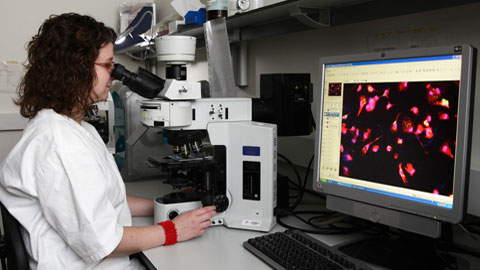Catalan universities maintain scientific production levels despite reduced funding

12/12/2014
The 2014 Report on Research and Innovation Indicators by the Catalan Association of Public Universities (ACUP) was presented at the UB in an event which included the participation of Roberto Fernández, President of ACUP and Rector of the University of Lleida; Enric Fossas, Vice President of ACUP and Rector of the Universitat Politècnica de Catalunya; and Antoni Castellà, Secretary of Universities and Research of the Government of Catalonia.
The report points to the fact that referent indicators when applying for funding in research and innovation by Catalan universities in the year 2012 continued to decrease for both Catalan and Spanish programmes, which represent 69% of what it receives, and other non-competitive funding sources. The only place in which funding continues to grow is that received by the European Commission's Seventh Framework Programme. Also highlighted is the increase in the Starting Grants awarded to young researchers, which go from eight to thirteen.
With regard to funding received from the European Research Council (ERC) per million of inhabitants, Catalonia has an index of 1.73, placing it ahead of countries such as France (1.26) and Germany (1) and even further ahead of countries such as Spain (0.56). Despite this large increase in international funding, global financing from competitive state funds have suffered a sharp fall, going from 201 to 155.5 million euros. At the same time, non-competitive funds went from 76.4 million in 2011 to 68.7 million in 2012.
Scientific Production
According to the report, Catalonia's state-run universities generated over half of the country's scientific production in the 2007-2011. Nevertheless, there has been a slight decrease in its representation, from 57% to 51%. The high productivity of researchers however make Catalonia's universities once again the first in Spain. The average of publications by those working full time is 1.23 in the year 2013, surpassing the indices of the past two years (0.94 in 2011 and 1.18 in 2012) and positioning itself at 86% above the rest of the state (0.66).
Scientific production in Catalonia, led by its universities, represents 0.7% of the world's production. A total of 43% of all production was made in collaboration with other international institutes. In addition, the average impact of quality is 60% higher than the world's average, making Catalan universities reach the first positions among all universities in Spain and rank sixth in the EU-15. From a qualitative viewpoint, the Catalan research system finds itself, alongside Great Britain and Belgium, within the reduced group of countries presenting a high production impact with low levels of R&D spending in relation to their GDP.
Knowledge Transfer
The ACUP report includes three transfer assessment indicators: the generation of patents; the creation of technology-based businesses (spin-offs) and the university-company chairs. In 2012, Catalan universities applied for 113 priority patents, with a 33% increase when compared to 2011 (85 applications). According to the report, in 2012 there were 118 spin-offs and 63 university-company chairs active. In total, knowledge transfer represented an income of almost 71 million euros.
The report's conclusions state that "with regard to production and level of efficiency, the Catalan system of research and innovation has a large potential. What we now need is to focus our efforts on increasing the amount of funding coming from Europe, strengthen international actions and boost the value of university research results".
2014 Report on Research and Innovation Indicators. ACUP